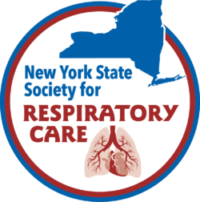Justification for Changing the Educational Requirement from an Associate to a Bachelor’s Degree
New York first recognized the practice of respiratory therapy and respiratory therapist technician as licensed professions in 1992. Cardiopulmonary medicine, pharmaceutical treatment, and medical technology have significantly advanced since 1992, as have the academic preparation and professional standards for Respiratory Therapists. A corresponding advancement in educational requirement for licensure to a bachelor’s degree is necessary to ensure that future respiratory therapists are adequately academically prepared for this expanding role. This higher academic requirement will ensure Respiratory Therapists are able to appropriately manage patients with complex cardiac and pulmonary disorders and continue to play an active role in improving patient outcomes.
The legislation we are pursuing will improve the health, safety and welfare of New York citizens in need of respiratory therapy services by increasing the educational standards for Respiratory Therapists (RTs) to a bachelor’s degree in keeping with best practices. Respiratory Therapists are healthcare practitioners who play an integral part in diagnosing lung and breathing disorders, consulting with physicians on treatments, assessing patients, and recommending specific changes in therapy based on their patient assessments. They are involved in analyzing data to determine levels of oxygen, carbon dioxide and other physiological parameters. Respiratory Therapists contribute heavily to managing patients placed on highly technical treatment modalities and medical devices. This includes providing a variety of advanced modes of mechanical ventilation and artificial airway devices, and actively participating in rapid response teams and emergency situations. Respiratory Therapists also provide education to patients and their families about how to best care for their cardiopulmonary disorders in both the in-patient and out-patient care setting.

